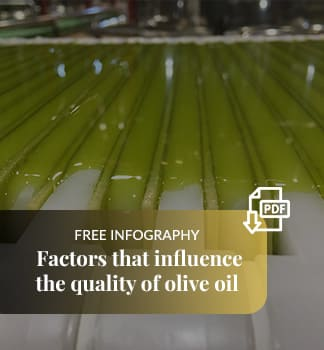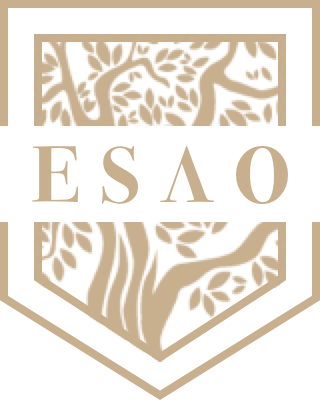Listen to this article
When we talk about marketing olive oil, like any other agri-food product, you must follow the current legislation of the country in question. However, in most countries, you need some basic requirements that in some cases will have to be adapted.
We will always refer to the European Union as the regulatory legal framework.
Basic requirements to market your oil
You need:
- Be autonomous or have a corporate model with specific business activity for the manufacture and / or distribution of olive oil.
- Have the registration in the food sanitary registry in the form of distributor, warehouseman, packer or manufacturer and have a unique registration number.
- Analysis of the organoleptic and physicochemical characteristics of your olive oil by laboratory or accredited tasting panel (according to EEC Regulation 2568/91).
- That the labeling and packaging designs comply with the specifications of the current legislation.
Before specifying the requirements to export olive oil, we are going to define what an Operator would be, since it will be a term that we have to familiarize ourselves with if we are going to export.
Operator is the natural or legal person that carries out its activity in the sector and the market of olive and olive-pomace oils, including harvesters who withdraw their oil from the mill in bulk and anyone who buys or withdraws olive oil Virgin in bulk from an oil mill. Likewise, olive packing machines and packing machines will be considered operators when they use untreated whole and raw fruits of Olea europaea L. for their subsequent transformation into oil.
International marketing: basic requirements
As basic international marketing requirements, specific for olive oil export, it is necessary that we also have:
-
The Registry of Intra-Community Operators (ROI)
It is a census of companies and freelancers at the European level that offers registrants a tax identification number that allows them to carry out commercial operations following the rules of intra-community VAT.
Many entrepreneurs are unaware of the existence of ROI and sometimes, without being aware, they purchase or sell products or services to clients and suppliers in other countries without benefiting from the advantages of being registered in said registry.
To do so properly, it is necessary to register in the Register of Intra-Community Operators as an intra-community operator and that the client or supplier with whom you contract is also registered.
The main advantage of being registered in the ROI is the possibility of carrying out transactions with clients and suppliers from other countries of the European Union with a VAT exemption.
-
Have basic documents to export
There are some basic documents that we must keep in mind when exporting, such as: certificates of origin of the merchandise, commercial documents, transport documents, phytosanitary certifications, insurance policy.
Invoices
To begin, we are going to know the different invoices with which we are going to work.
Proforma invoice
It is a provisional and non-binding invoice whose purpose is for the buyer to have information about the weight, number of packages, transport costs, insurance, etc. of the operation to be performed.
Commercial invoice
The binding document that makes up any sale and purchase transaction. This must contain the concept, quantity and amount of the products to be exported, the means of transport, the delivery conditions and the payment method.
It is from this document that the customs authorities determine the taxes and duties on what is going to be imported depending on the country of destination.
Sample commercial invoice model
The intracommunity invoice
It is one that is issued after the provision of a service or the sale of a good in the intra-community sphere, as long as they have been transported from one member state to another.
The main uniqueness of intra-community invoices is that VAT does not appear on them, as they are exempt from paying this tax. Of course, they are essential conditions for said exemption that the provision of the service or the sale of the goods has been carried out between two companies from different states and that both are registered in the Registry of Intra-Community Operators.
Packing list
It is the list of products that transport agencies provide information about the merchandise. This document, which is mandatory, contains information about the cargo, giving it a reference number to avoid losses and destruction and facilitate the selective recognition of the goods by the customs authorities.
Packing list example
Certificate of origin
The purpose of this document is to prove that the merchandise really comes from the country of origin. It is used for exports outside the European Union.
Example of Certificate of Origin document
Transport documents
There are also documents whose basic function is to prove the state in which the merchandise has been received in the destination country. In the case of road transport, this is the "International Road Transport Document (CMR)".
When we talk about exporting olive oil, we have to take into account that according to the countries, they can also request phytosanitary documents, among others. In certain countries there are specific documents subjugated to the beneficiaries derived from international agreements.
-
Know the VIES and have a relationship of Logistics Operators
VIES is a search engine for intra-community operators that has the European community website enabled for those enrolled in the ROI to make inquiries.
Depending on the country, the search engine can also be accessed in other entities, in Spain for example on the tax agency's website.
We leave here the link to the European VIES https://ec.europa.eu/taxation_customs/vies/?locale=es
European VIES
-
The usual meters: pallets, converters.
If, for example, we want to specify in pallets, we must know that, nowadays, the freight transport market is dominated mainly by two types of pallets: the European pallet and the American pallet.
The European pallets measure 1200 x 800 mm, allowing to make the most of the capacity of the train wagons by introducing the largest possible load. The weight of these pallets is 25 kg and it is capable of supporting loads of more than 1,000 kg, even reaching 4,000 kg if they are static loads.
The dimensions of the American pallet are 1200 x 1000 mm, it has an approximate weight of 25 kg and is capable of supporting dynamic loads of around 1200 kg. This greater resistance to dynamic loads makes it the most chosen when transporting liquid substances.
The great use of these American pallets has its justification in that it is the main option when it comes to transporting by the United States and Japan, two of the great world powers. If you are going to export to the United States, it is important that you take into account the specific regulations.
-
Olive oil traceability.
In order to preserve and value olive oils, as well as to avoid possible fraudulent practices, it is necessary to establish certain obligations of the operators of the sector in terms of facilities, prohibited practices, accompanying documents and traceability of the products.
These obligations and prohibitions must be applicable to all operators, understanding as such the natural or legal persons that participate in any of the stages of the production and marketing of olive and olive-pomace oils, therefore including the centers. of olive purchase, cooperatives or mobile oil mills among others.
In development of Article 7 bis of Regulation (EEC) No. 2568/91 and without prejudice to the provisions of Regulation (EC) No. 178/2002, it is mandatory to maintain a standard traceability system that allows products to be easily located and insists in the correct identification of the same in all the stages of the production, transport and commercialization of the oils object of the norm.
With the standardized traceability system, it helps to promote food quality, to improve consumer confidence, to differentiate products from other similar ones, to recover and promote the market and to guarantee, where appropriate, the selective withdrawal of the products. products.
To make it easier for operators to comply with the obligations of the standard and for the competent authorities to control them, it is necessary to implement a computerized system that gathers the data on the movements of olive oils.
A tool that can help us in the traceability of olive oil is the RFID system, an acronym for radio-frequency identification, it is a technology that aims to identify and record data. In fact, the system is based on the use of smart tags or RFID tags, which are radio transponders (that is, when receiving one signal they respond with another).
These labels contain product information that can be read throughout the entire logistics chain. In this way, we can more easily track the merchandise and learn important aspects about it (origin, destination, expiration date, etc.).
This tool could replace the barcode.
-
Certifications
Quality and food safety certifications are sometimes the requirement that will determine the purchase of our olive oil by an importer or distributor.
The IFS certification is a private technical protocol developed by German, French and Italian distributors with the purpose of helping suppliers to supply safe products in accordance with the specifications and current legislation.
This protocol requires the prior implementation of a quality management system, a HACCP system based on the Codex Alimentarius, as well as the implementation and management of prerequisites and facilities.
It includes all the requirements of suppliers and conforms to international requirements (GFSI), providing a clear vision of the concepts of food safety and quality control through evaluations to suppliers, in which a complete perspective is offered of their activity.
The Certification scheme according to the BRC Standard is considered today as an international benchmark for the qualification of suppliers of products and brands in large stores. To enter the US market, it is undoubtedly essential to have this certification.
It is a scheme whose objective is to safeguard the food safety of the products that we find in the market by establishing requirements that guarantee the safety of food.
We have seen here some minimum requirements to market and export virgin olive oil, however whenever it is the first time it is advisable to carry out the operations together with a professional who is used to exporting olive oil, and little by little we will go getting used to these procedures, sometimes so cumbersome.
Once we have seen the main requirements that you need to market and export olive oil, we want to insist and highlight the importance of being up to date with the specific regulations of the country to which we are going to introduce our merchandise.
.png)
.jpg)





